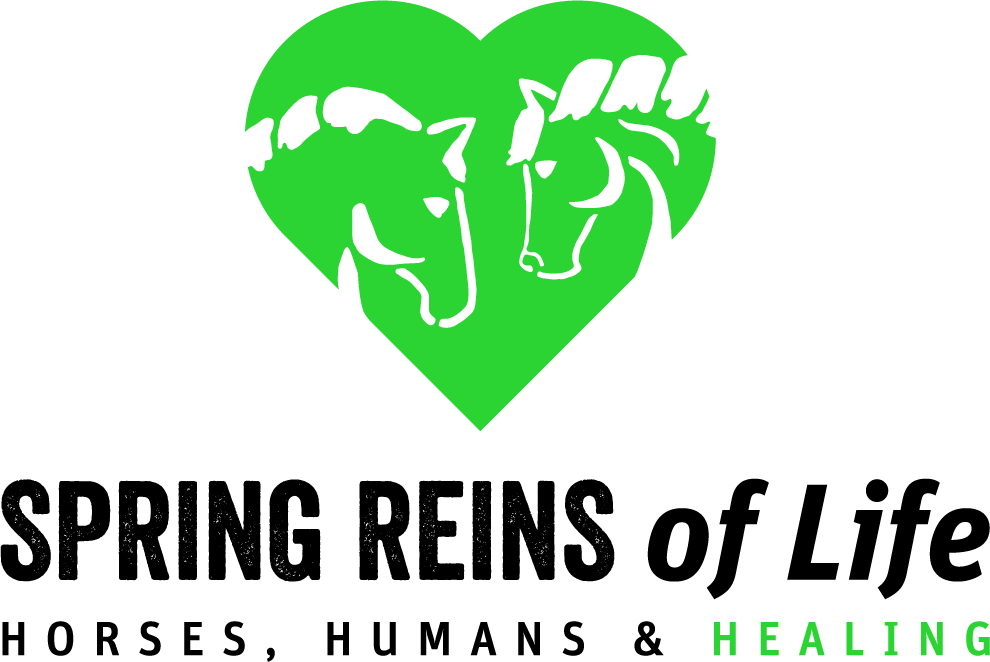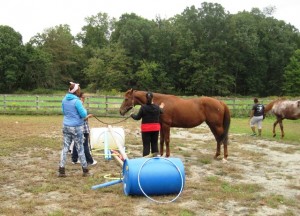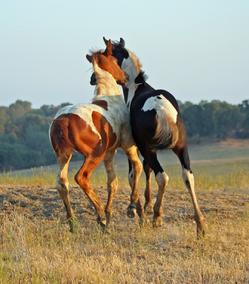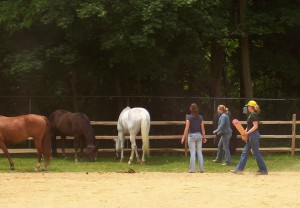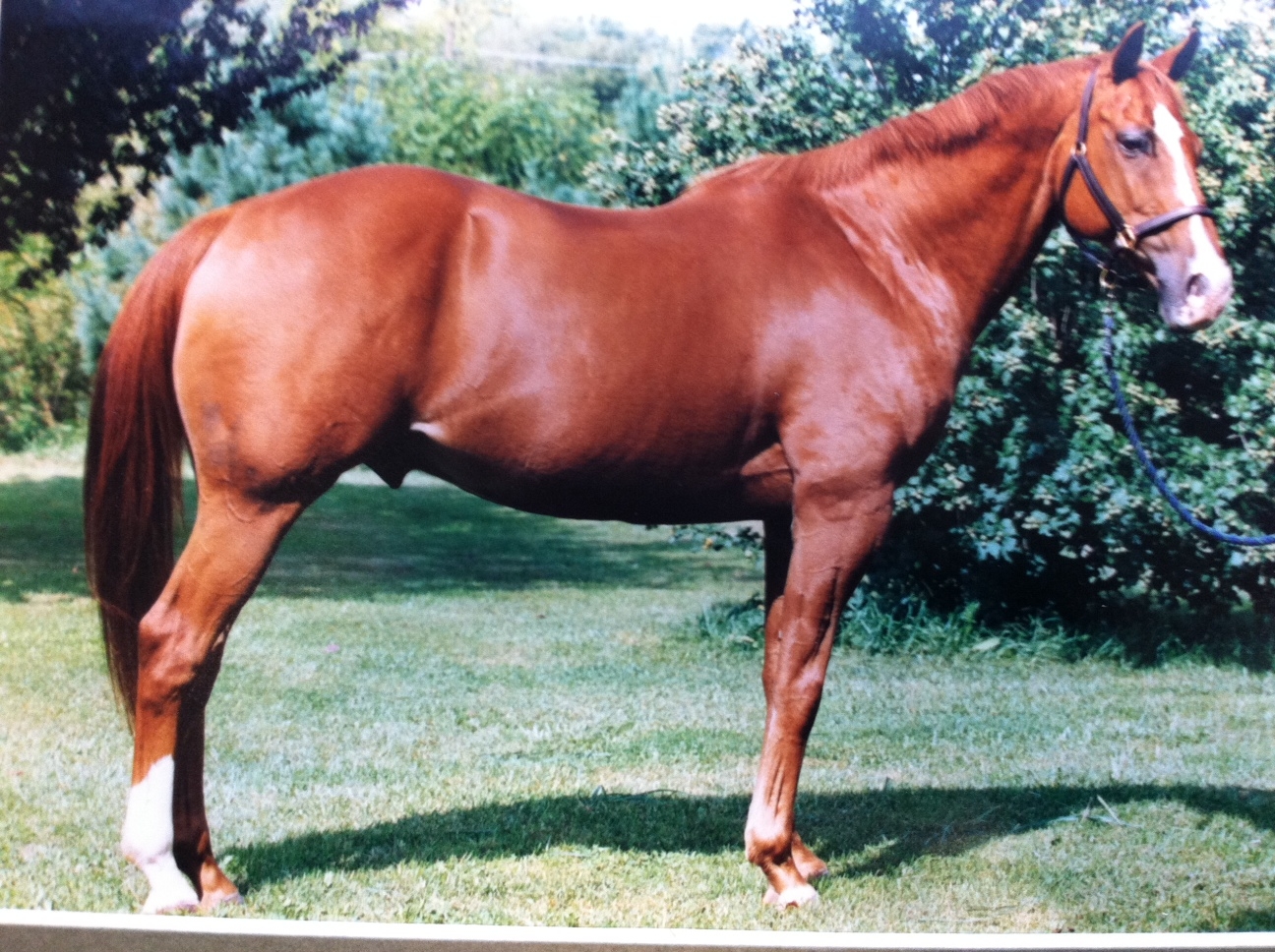“A horse doesn’t care how much you know until he knows how much you care. If your horse says no, you either asked the wrong question, or asked the question wrong…”
~ Pat Parelli
EAP for At-Risk/Disadvantaged Youth
Teen drug abuse, teen gang culture, teen alcoholism, teen pregnancy, teen violence and crime…these are not statistics that reside only in the inner cities and ghettos anymore…Studies show that in today’s world of single parents, dysfunctional family units, social issues and early exposure show no boundaries at putting nearly ALL teenagers “at-risk”…
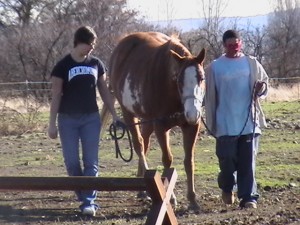
Photo Courtesy of Teaming for Success
The recent past has witnessed a steady increase of troubled adolescents interfacing with the law. The phrase “at risk youth” refers to an adolescent who struggles with the moderate to severe emotional and behavioral disturbances, which can ultimately lead them into areas which threaten their future and development such as gang culture, violence, petty / felony crime, substance abuse and incarceration. Regardless of the reasons, the teenager who is emotionally unstable may become a danger to themselves and to others.
Animal Assisted Therapy is proving to be a potent treatment modality suited for at risk or disadvantaged youth. Studies have shown that spending time with a domesticated animal can reduce levels of stress and hyper-arousal. Far from being haphazard these practices are focused and intentional, and producing marked positive results.
Powerful yet gentle, perceptive yet without any judgment – horses can help at risk youth gain knowledge about their inner demons and their inherent strengths. A horse does not care if you have dropped out of school, been in jail or if you are unpopular or have a learning disability…they only care about what you exhibit in the moment. Horses are incapable of lying, cheating and manipulating. This alone sets a good example to teenagers because they soon realize that it is counterproductive to cheat, manipulate, or lie while engaged in activities with the horses. The horses provide an unconditional, non-judgmental and honest platform that is fundamental to healing the soul.
At Sierra Tucson, an internationally recognized residential program for teenagers with addiction and behavior disorders says this of its equine assisted therapy portion of treatment:
“Equine therapy helps patients identify unhealthy behavior patterns and learn to establish positive relationships. The EAP is particularly effective because the horses are typically non-judgmental and have no motives or expectations. The horse assists in making patients aware of their emotional state as the horse responds to their behavior acting like a mirror to the person interacting with them. A horse will become fearful if he’s with someone who is aggressive, noisy, disrespectful or controlling. On the other hand if the person makes requests instead of demands the horse will begin to cooperate.”
Franklin Levinson
Equine Specialist, Sierra Tucson“This ability of the horses to help patients identify healthy vs. non-healthy behaviors within themselves is among the most beneficial components of our program. I continue to be awed when repeatedly the horse will respond to each client in a way that specifically targets his or her issue that yearns for healing.”
Nancy Jarrell
Assistant Clinical Director, Sierra Tucson
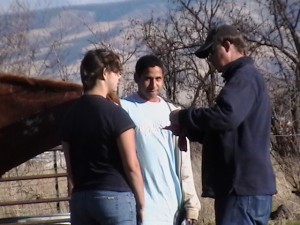
Photo Courtesy of Teaming for Success

Photo Courtesy of Teaming for Success
The equine assisted psychotherapy model is proving to be effective methods for helping teens overcome defiance, anger, low self-esteem and mood disorders. Also various activities with “disadvantaged” horses can foster new patterns of empathy and compassion almost instantaneously. Horses have a way of breaking down a student’s barriers and defense mechanisms. Teens who struggle with relationships and authority will often accept the horse’s presence and feedback more readily and develop that relationship based on respect, trust and patience which then equips the students with skills to form and uphold healthy relationships with people. Horses are excellent experiential teachers in that working with a 1000 pound animal who doesn’t talk can be frustrating – teens are naturally rewarded when they exercise patience, creativity and resilience, and quickly find out that they are unsuccessful when angry, aggressive or frustrated.
Horses illustrate the law of cause and effect perfectly. One learns their behaviors and actions trigger responses and that if they modify or reassess their communication methods, body language or behavior – then the horse will give them a different outcome, just as is true with human interactions. Success can be seen or felt immediately when the horse begins to respond to the individual, and this quickly builds self-esteem, teamwork, self-leadership and a sense of personal control. Horses also are able to illustrate respect for others and authority figures simply by the nature of their size and strength. In many cases the “toughest kid on the block” is actually experiencing feelings of insecurity and fear, in this instance the horse’s size and strength alone can help the teen to realize that they can get along with others well by building their confidence and self-esteem, rather than with intimidation techniques.
Horses offer another interesting facet to therapy for at risk youth – a different environment. The pasture or paddock offers a natural setting that is outside the office in which the teens don’t feel as closely watched by the therapist. In addition, teens that are skilled at avoidance or denial in the office will have a hard time to do so when in the presence of the horses. Another benefit to working with the horses is that most of the activities require immediate response/reaction which can generate the same coping skills students use under duress in their lives; issues can then come to the surface quickly and therefore can be addressed and processed sooner.
At Spring Reins of Life we have carefully designed group activities with the horses to target issues faced by at risk youth. Sometimes during the course of the group program sessions the EAP treatment team may see the need for individual EAP or EAL sessions and/or the opportunity to incorporate inviting siblings and/or parents to join the process, this would be handled on a case by case basis as the core of this program is to offer services within the core of a group dynamic and would be addressed by the mental health team.
Working with the horses can help at-risk youth to:
- Enhance problem solving and social skills
- Learn empathy and stimulate creativity
- Accept accountability for behaviors
- Gain a sense of personal control
- Learn stress, anger and frustration management
- Decrease feelings of hopelessness and depression
- Learn better communication skills
- Build a strong and positive perception of self
- Learn cause and effect – taking responsibility
- Find direction, focus and meaning for life/future
- Establish and build positive relationship foundations
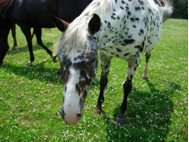

NEWS! Funding Effort Established for At Risk Teen Boys in NJ!
As of Winter 2012, a specific funding drive has been set up in honor of a dearly loved and special horse (who lived locally in Pittstown) named Chivas. This story is a sad one, but it concludes (and hopefully continues) with love and hope as the inspiration. The Chivas Memorial Fund (formerly, The Justice for Chivas Fund) was originated by Kris Smalley & Kelly Post to honor their beloved friend. All funds raised on behalf of Chivas will be donated to Spring Reins of Life, for EAP services to be provided to at risk male teenagers in the state of New Jersey. All donations will be tax deductible via 501c3, Spring Reins of Life. Use this link to securely Donate On-line, or contact us at info@springreinsoflife.org to inquire about mailing a check.
“A horse is the projection of people’s dreams about themselves – strong, powerful and beautiful – and it has the capability of giving us an escape from our mundane existence.”
~ Pam Brown
